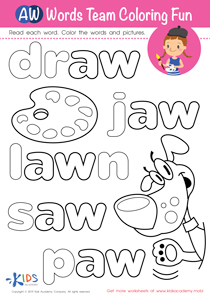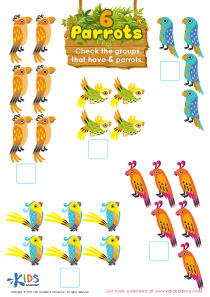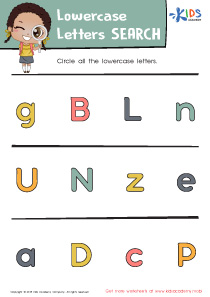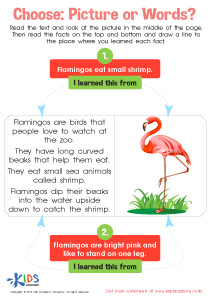Matching and Sorting Quizzes for Ages 3-5
5 results
5 filtered results
Clear all filters5 filtered results
-
From - To
Introducing our engaging Interactive Assessment Quizzes, specifically designed for Matching and Sorting for Ages 3-5. These quizzes are the perfect tool to check your child's understanding and progress in these foundational skills. Crafted by educational experts, our quizzes are not only educational but incredibly fun, ensuring that learning feels like play. Each quiz provides immediate feedback, encouraging young learners to grasp the concepts of matching and sorting with ease. Ideal for preschoolers, these interactive quizzes cater to children aged 3 to 5, offering a delightful blend of learning and enjoyment. Help your child master the basics with our tailored quizzes today!
In the formative years of childhood, especially for those aged 3 to 5, the introduction of fun and engaging educational tools is crucial for developing foundational skills. Among the plethora of learning activities, interactive quizzes designed specifically for matching and sorting play a pivotal role in enhancing cognitive abilities, critical thinking, and problem-solving skills in young learners. Let's delve into how these interactive quizzes on matching and sorting are not only captivating but are also significantly beneficial to children in their early stages of education.
First and foremost, matching and sorting activities are fundamental to the cognitive development of preschoolers. By engaging in these quizzes, children learn to recognize patterns, shapes, colors, and sizes, which are essential skills for mathematical understanding and literacy. Interactive quizzes on matching and sorting for ages 3 to 5 are crafted to make this learning process enjoyable and stimulating, ensuring that children are captivated while they learn. The vibrant colors, engaging sounds, and friendly characters often found in these quizzes grab the attention of young minds, making the learning process enjoyable and less daunting.
Moreover, these interactive quizzes offer a hands-on learning experience that is crucial at this stage of development. Children learn best through play and interaction, and by actively participating in these quizzes, they are not only learning but also enhancing their motor skills. The action of dragging and dropping items to match or sort them helps in the development of fine motor skills and hand-eye coordination, which are vital for writing, drawing, and other educational activities later in life.
Another significant advantage of these interactive quizzes is the immediate feedback they provide. Unlike traditional learning methods where feedback can be delayed, interactive quizzes on matching and sorting for ages 3 to 5 offer instant responses to the actions of the child. This immediate reinforcement helps children understand the concepts of right and wrong in real-time, encouraging them to learn from their mistakes and celebrate their successes. This not only boosts their confidence but also fosters a positive attitude towards learning.
Additionally, these quizzes are designed to adapt to the individual learning pace of each child. Unlike a one-size-fits-all approach, interactive quizzes can adjust the level of difficulty based on the child's responses, ensuring that the learning experience is neither too challenging nor too easy. This personalized learning journey helps maintain the child's interest and motivation, making it an effective tool for early education.
Furthermore, engaging in matching and sorting quizzes helps develop critical thinking and problem-solving skills. Children learn to categorize items based on different criteria, analyze patterns, and make predictions. These skills are not only crucial for academic success but also for everyday decision-making and reasoning.
In conclusion, interactive quizzes on matching and sorting for ages 3 to 5 are an invaluable resource in the toolkit of early childhood education. They offer a multifaceted approach to learning that combines fun, engagement, and education, all tailored to the developmental needs of young children. By incorporating these quizzes into the learning routine, parents and educators can ensure that children are building a strong foundation for future learning in a way that is enjoyable and effective.











